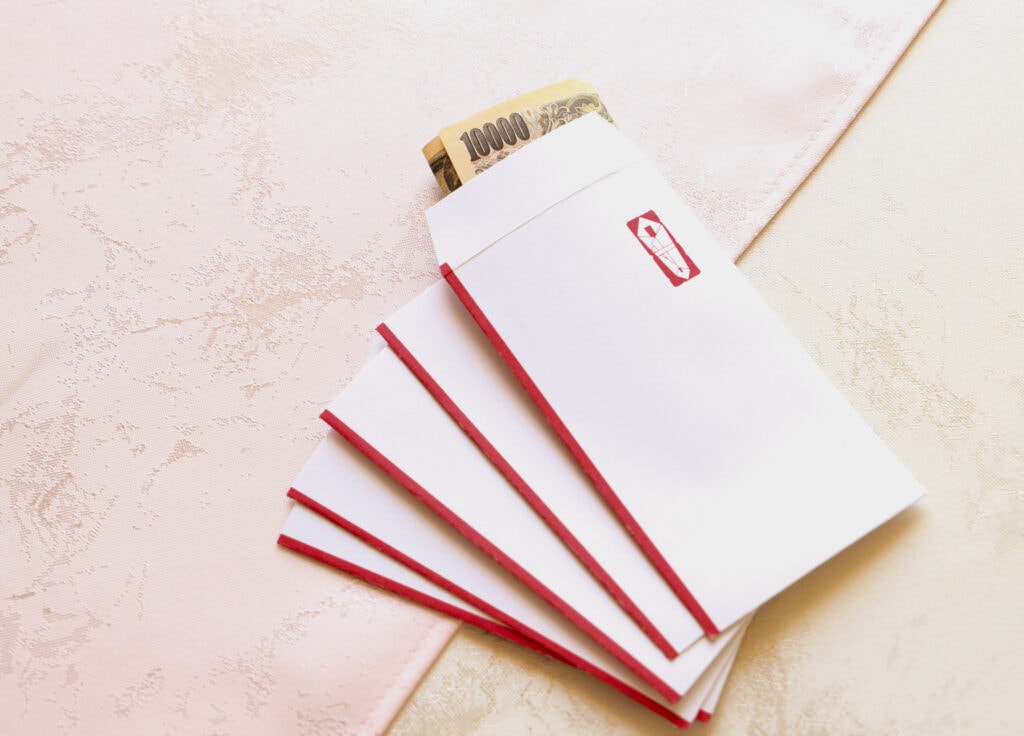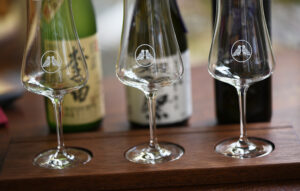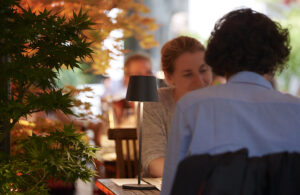Recently, in a restaurant, we were asked if tipping is not done in Japan and how we do it in the Restaurant sansaro in Munich would hold with it.
We are always impressed by the knowledge and the great interest that our guests have in the culture and customs of the Japanese, and here we go into more detail on the topic of "tipping in Japan".
The very quick answer: of course you are allowed and expected to tip in Japanese restaurants in Germany. In Japan itself, the matter is - as always - a bit more complicated...
What is Kokorozuke
Strictly speaking, it is not true that there is no tipping system in Japan. It is quite common in certain situations to give money to those who provide the service in the form of "Kokorozuke" (心付け), which translates as "coming from the heart". (心 Kokoro means heart in German).
On various occasions, Japanese people give this said kokorozuke to the waitress such as. the service in the "ryokan (a traditional Japanese hotel), or in the "ryotei" (a Japanese restaurant), an employee of a wedding or a funeral ceremony, or a cab driver. In fact, in Japan, it is more an expression of gratitude from the guest than appreciation for the service. This is also the reason why this "gift from the heart" is often given before the serving begins.
Tip & Omotenashi
In the spirit of Omotenashi some people believe that no financial compensation should be expected for the efforts and care of a guest. There is also a widespread assumption that there is no tipping in restaurants in Japan, as the bills often include a so-called "service charge".
No automatic tipping in Japan as in the West
And in fact, there is no automatism of tipping in restaurants in Japan, as there is in Europe or America, for example. But all this has nothing to do with the fact that tipping in any form is an insult in Japan.
It's more, as so often in Japan, about a form of mutual respect in all sorts of complicated ways.
Direct giving of monetary gifts often unpleasant in Japan
It is true that in Japan it is considered unpleasant to give money directly to someone. Especially gifts of money for certain occasions such as weddings, funerals and the like are therefore put in an envelope or wrapped in paper.
It is also important to know that in Japan, tipping is not considered a part of the service staff's usual income. In fact, most Japanese see wages as adequate compensation for their work.
So first of all you assume that you are paid for your work and therefore do it - anyway - properly and in guest service from the heart gladly as good as possible.
So although kokorozuke is usually only given in certain situations, tipping is not in any way offensive or problematic. It is just plain unusual in the normal restaurant business. It is neither unseemly to give it nor not to give it.
How and when to give Kokorozuke in Japan
However, because - despite this basic freedom - there are a few things to keep in mind when giving kokorozuke in Japan, we would like to give a few hints here (of course, these do not refer to weddings or funerals, with which a tourist usually has less to do).
On what occasion do you give kokorozuke?
- In a hotel, a restaurant, a cab or driving service, if one has received a special service, such as a better room, or if for some reason one brings food and drinks to the room or requests services that are not normally customary. The mindset: if I ask the restaurant, hotel, cab driver, etc. to do something different from the usual, I should show my appreciation or document my awareness that I am asking for something unusual. Comparable with the corkage fee in a restaurant, if you want to bring your own wine for some reason.
- If a driver is more helpful to you than usual.
- In a café or fast food restaurant, there is rarely an opportunity for an extra tip.
What is the right time for Kokoruzuke
- In most hotels and restaurants there are employees whose job it is to take care of you specifically. They are called "Nakai" (仲居). When you are directed to your table or room by this staff member, you say, "Thank you for preparing everything," and give kokorozuke.
- For special arrangements, give kokorozuke after they have been agreed upon or completed.
- After a cab ride, unlike in the previously described situations, you can leave the change as a tip.
How to give Kokorozuke?
Put the money in an envelope or wrap it in paper.
In Japan, there are small envelopes called "pochi-bukuro" (ポチ袋) which are used for kokorozuke or other money giving. These envelopes can be bought at konbinis, supermarkets, stationery stores, etc., and if you have pochi-bukuro envelopes with you, you can hand over a kokorozuke in an elegant way at any time.
How much do you give as kokorozuke?
Kokorozuke is always given in paper money, never in coins. If it is Japanese Yen, it should be 1000 Yen (about 8,- €) or more. For example, if you stay in a room for 30,000 yen, you give an average of 3000 yen. However, since Kokorozuke is supposed to be your "real feeling", giving 1000 yen is not a problem either.
In Japan, Kokorozuke is by no means obligatory
Once again, very clearly: Kokorozuke is not a mandatory custom in Japan! If you are satisfied with the service, it is enough to say so. It is first about mutual recognition, a respectful way of dealing with each other when you are in any form of business relationship. But if you want to give a visible expression of your satisfaction, give kokorozuke from the heart.
Tipping in Japanese restaurants in Germany
Here in Germany, most restaurant workers are used to tipping - and it's often an important part for a restaurant, as Germans are known to otherwise like to be frugal when it comes to food.
At Restaurant Sansaro tips are usually shared among the staff and we do not consider them simply money, but a gift from the heart from our guests.
This pleases us very much, because we, for our part, gladly make every effort for every guest and every plate, which would not be possible without a hard-working and large kitchen crew.
Since especially the kitchen team does not have the opportunity to talk directly to the guests, we believe that tipping is also a kind of message that our guests enjoyed the food. It is a motivation for all of us to keep improving.
Thank you very much for this.







